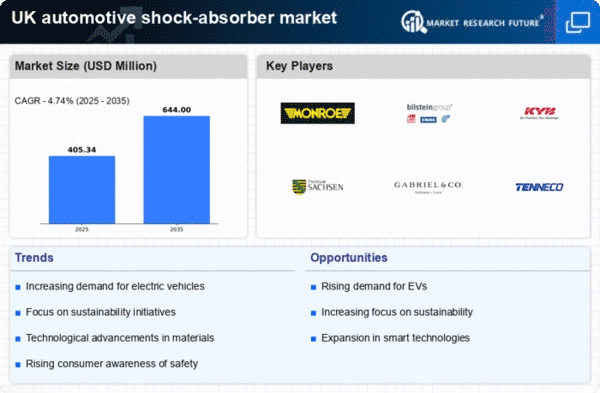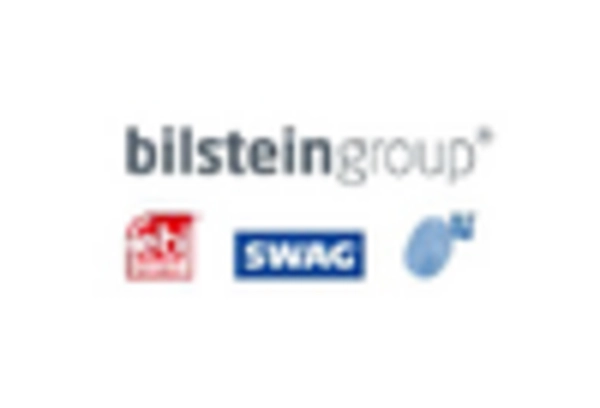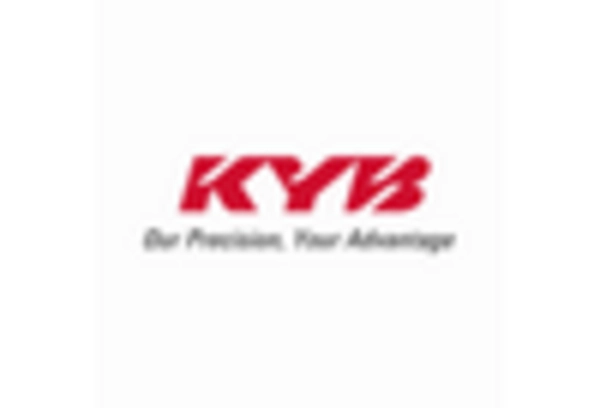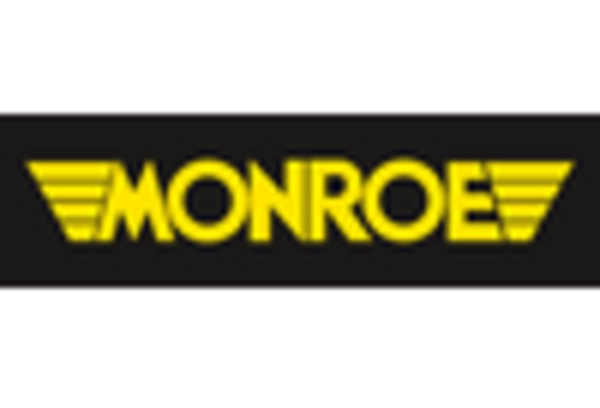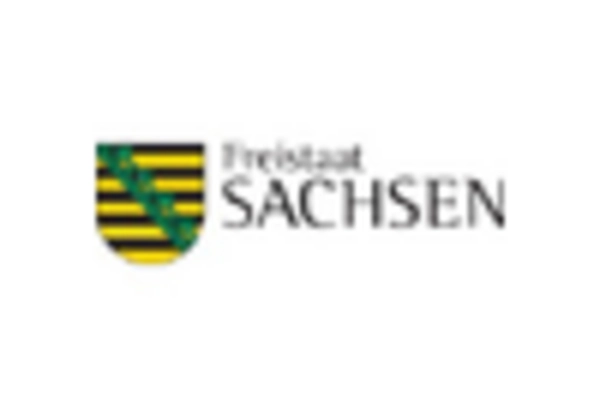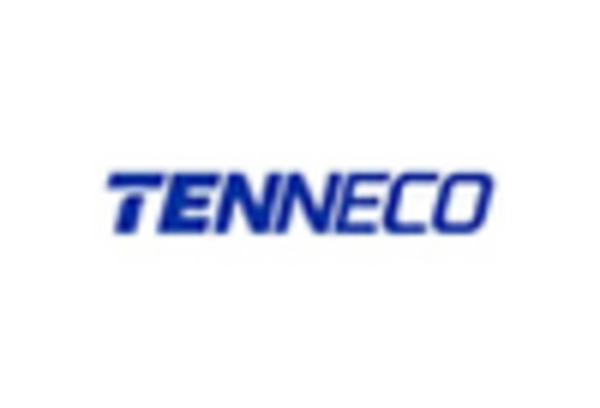Rising Vehicle Production
The automotive shock-absorber market is experiencing growth due to the increasing production of vehicles in the UK. In recent years, the UK automotive sector has seen a resurgence, with production levels reaching approximately 1.3 million units annually. This rise in vehicle production directly correlates with the demand for shock absorbers, as every vehicle requires these components for optimal performance and safety. The automotive shock-absorber market is likely to benefit from this trend, as manufacturers strive to meet the growing needs of both traditional combustion engine vehicles and emerging electric vehicles. Furthermore, the expansion of production facilities and investments in new technologies may further enhance the market's growth potential, indicating a robust future for shock absorber suppliers and manufacturers in the UK.
Growth of Aftermarket Services
The automotive shock-absorber market is benefiting from the expansion of aftermarket services in the UK. As vehicle ownership rates rise, the demand for replacement parts, including shock absorbers, is also increasing. The aftermarket segment is projected to grow at a rate of approximately 5% annually, driven by factors such as aging vehicles and the need for regular maintenance. This trend presents a lucrative opportunity for the automotive shock-absorber market, as consumers seek reliable and cost-effective solutions for their vehicle maintenance needs. Additionally, the rise of e-commerce platforms has made it easier for consumers to access a wide range of shock absorber products, further stimulating market growth. As a result, manufacturers and suppliers are likely to focus on enhancing their distribution channels to cater to this growing demand.
Increased Focus on Vehicle Safety
The automotive shock-absorber market is significantly influenced by the heightened emphasis on vehicle safety standards in the UK. Regulatory bodies have implemented stringent safety regulations, compelling manufacturers to enhance the performance of their vehicles. Shock absorbers play a crucial role in ensuring vehicle stability and passenger safety, making them indispensable components. As a result, the automotive shock-absorber market is witnessing a surge in demand for high-quality, reliable shock absorbers that meet or exceed safety standards. This trend is further supported by consumer preferences for vehicles equipped with advanced safety features, which may lead to an increase in the adoption of innovative shock absorber technologies. Consequently, manufacturers are likely to invest in research and development to create products that align with these evolving safety requirements.
Rising Demand for Electric Vehicles
The automotive shock-absorber market is experiencing a shift due to the rising demand for electric vehicles (EVs) in the UK. As consumers become more environmentally conscious, the transition towards EVs is accelerating, with sales of electric cars increasing by over 30% in the past year. This shift presents unique challenges and opportunities for the automotive shock-absorber market, as EVs often require specialized shock absorber designs to accommodate their different weight distributions and performance characteristics. Manufacturers are likely to invest in research and development to create shock absorbers tailored for electric vehicles, which may lead to innovative solutions that enhance ride quality and handling. Consequently, the growth of the EV market could significantly impact the overall dynamics of the automotive shock-absorber market.
Technological Innovations in Manufacturing
The automotive shock-absorber market is poised for growth due to ongoing technological innovations in manufacturing processes. Advancements such as automation, robotics, and the use of advanced materials are transforming the production landscape. These innovations enable manufacturers to produce shock absorbers that are not only more efficient but also more durable and lightweight. The automotive shock-absorber market is likely to see an increase in the adoption of these technologies, which can lead to cost reductions and improved product performance. Furthermore, the integration of smart technologies into shock absorbers, such as electronically controlled damping systems, is expected to enhance vehicle handling and comfort. This trend may attract a broader customer base, including those interested in high-performance vehicles.


